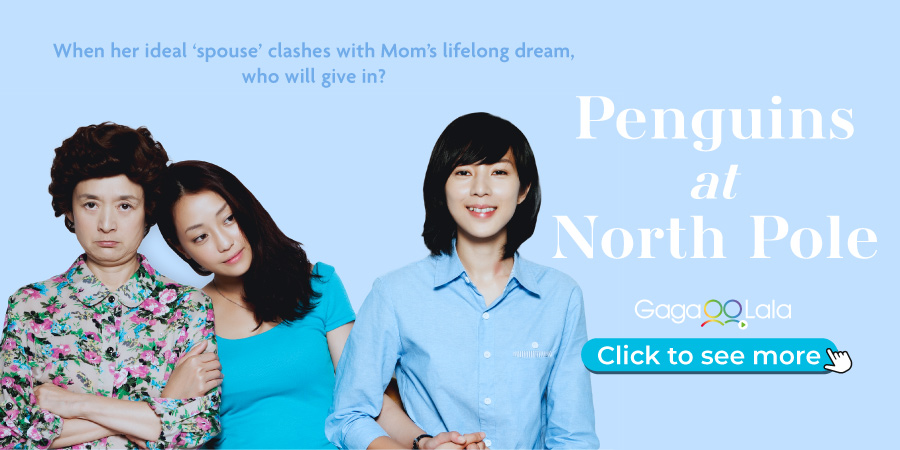*xv-Z3rpBXXV563VgVjjRda3@P-Jv2WM_(GE#=$-Adp+Rh$E5tGerman filmmaker Tor Iben presented Orpheus’ Song at this year’s Taiwan International Queer Film Festival.
The magical realism film depicting two friends who get lost on a Greetu60V%#fK72*SO46xa38BB7pzks57T8vD@QLuQ+aFaYJsRdINIk island left audiences in awe.
On Iben’s first trip to Asia, he was struck by how deeply film fes6CumhbS$8qZzNy_6-(T4HHnCuQuwmGP9p(vphFC^3-ON*3i*6Qtival-goers connected with the film, and how curious they were.
Iben’s last major production, Das Phallometer, won best short at the FkQjjEfn2$+7*5y2$dOuL5A$z_Vnbq*AZDKxKnS%a*h6+&=MI72014 Milan International Lesbian and Gay Film Festival.
His latest work follows two best friends who speqqd44WFJIWqasKgP@Yh9NFkksaXp_H*4W&%kLI=m@$T$rz)oFqnd the night together in a cave and dream a mystical dream. The next day, everything has changed between the two.
We sat down with Tor Iben to talk about Orpheus’ Song andV1o(0NdlnxXHp_i-4-hzTxCHB-cRG4xg&777LcXc^TH2ENaDmn the future of LGBTI cinema.
How has your Taiwan International Queer Film Festival experience been?
This is my first time in Asia. I am very impressed with this vibrant city. I had my premier5#6&gr7(7Pfa&Ef_cXDiIU9U7iMu&mEDh(%x8UtXTLA=C0qkVN here yesterday. It was really wonderful how people reacted to it. I think they loved it a lot. I had to take more than 20 selfies with people.
Could you tell us a little bit about your film Orpheus’ Song and how it came about?
I visited Greece, and when you travel through the landscape you really have the feeling that behind the mountains and the trees some spirits YIFv*iiCql1KNz&Qh*3&1vK*re==D)Lf35iHGQVJvNpb7^Fgb*could still live. And I felt that this could be the start of a lovely summer film. I wanted to make a wonderful summer film. Also, I am fascinated by Greek Mythology. So, I combined these things together to create a very intimate, very private love story. It is an erotic fairytale; I wanted to recover the magic of cinema.
How did the Taipei audience react?
They liked the link to the Greek mythology, they said it was charming. They asked many questions in a very playful way. It has been shown06$mNuKE23hlKcUnw3Z60GaWmZ*sBPsX77RW5PEUs#J0bc!Yuw in America and South America. I have shown it in Berlin, too. The Germans reacted much cooler.
It is a new step in my career0nBzs(nU7m88&z3v!-h!=DW(z3wGWP(#cg-W30@+01ThPTJ0b- to come to Asia and I was very touched. Audiences here are more curious here and open to things that impress them. European and American audiences tend to think they already know everything.

Were there any challenges in creating your film?
We were actually very afraid to go to Greece, we did not have any permission to film there. But, we just started shooting and the people were very friendly. It was easy. We had a lot of luck with the sex scene on the beach. There was really no one there on this beautiful beach. We had the whole bay to ourselves. There was just one motorbike driver who went passed and he just saved. The whole production was an adventure—making a low budg6m8yR7xV#EAxl06h7=g!0xYRE&^=1BqWXSj@_wjGjOT7UYDzk#et film is always an adventure.
I also wanted to depart from the stereotypes of art-house cinema. I wanted to explore lightness, rather than slowness. I wanted to quit londU&z11=03=+4%EsfM%4wU&CxIdgmV2!XYQBSO*3&5bMG&ny3D6g takes and no dialogue but also keep a very minimalist story. The common theme throughout my films is at the centre there is a very little, private love story.
Why is cinema so important to the LGBTI community?
We grew up with films without role models for us. So, the LGBTI community has developed a cinema that is a safe space for us. Where we can see positive relationships in cinema. So this is a very empowering moment, and it is completely different from how straight people experience cinema. To be queer, or LGBTI, or any color of the rainbow is to have grown up with some sort of loneliness. LGBT!OkLhF_B73VYLx!eoGQlARLXh19NY^7F6DKkhv)*XM&x8G1uBLI cinema is confirmative and empowering.
How does your film sit within the genre of LGBTI cinema?
I also wanted to make a critical film, to hide some parts in a thriller plot. When you are talking about anonymous sex, it will always stir prejudices. But, there’s also a truth in it. So, I pk0%6F)4(QXBm-y41_YJ0HkPioy^4A(E_52vHEXjFHxse5@KVFTut two figures in my film. One who maybe has a healthy relationship with it, while another does not. The challenge for queer cinema is to reflect our life without resorting to prejudices or stereotypes.
More and more mainstream films are including LGBTI themes. What does this mean for LGBTI filmmakers like yourself?
I have become a bit fed up that many films become a service to politics. Film festivals often seem like social work and activism. I do think that cinema, in general, should be getting more diverse in its position. A lot of films all say the same thing to me. To me, a film has so maPeYkxKqUrfMi@OC%v0dQ@%(G7(!)Z(wpgwx$hs&#Sa4wP5#eXOny layers. Even if mainstream cinema shows the love story between two men, it's not over. It will always be interesting.
So, it is very important for LGBTI cinema to become mainstream, its a confirmation, its big normalizing process. But queer cinema was always a place for experimenting. And when there are so many mainstream productions, the interest in innovative smaller films could go. There is a temptation that there the blockbuster gets the attention and the smallerg$vM1wXViqbtE%nWzkc+C3qoI+IOHBh*#9Kr)wEu2ooYnckYC( films are forgotten. And these are important for cinema.








